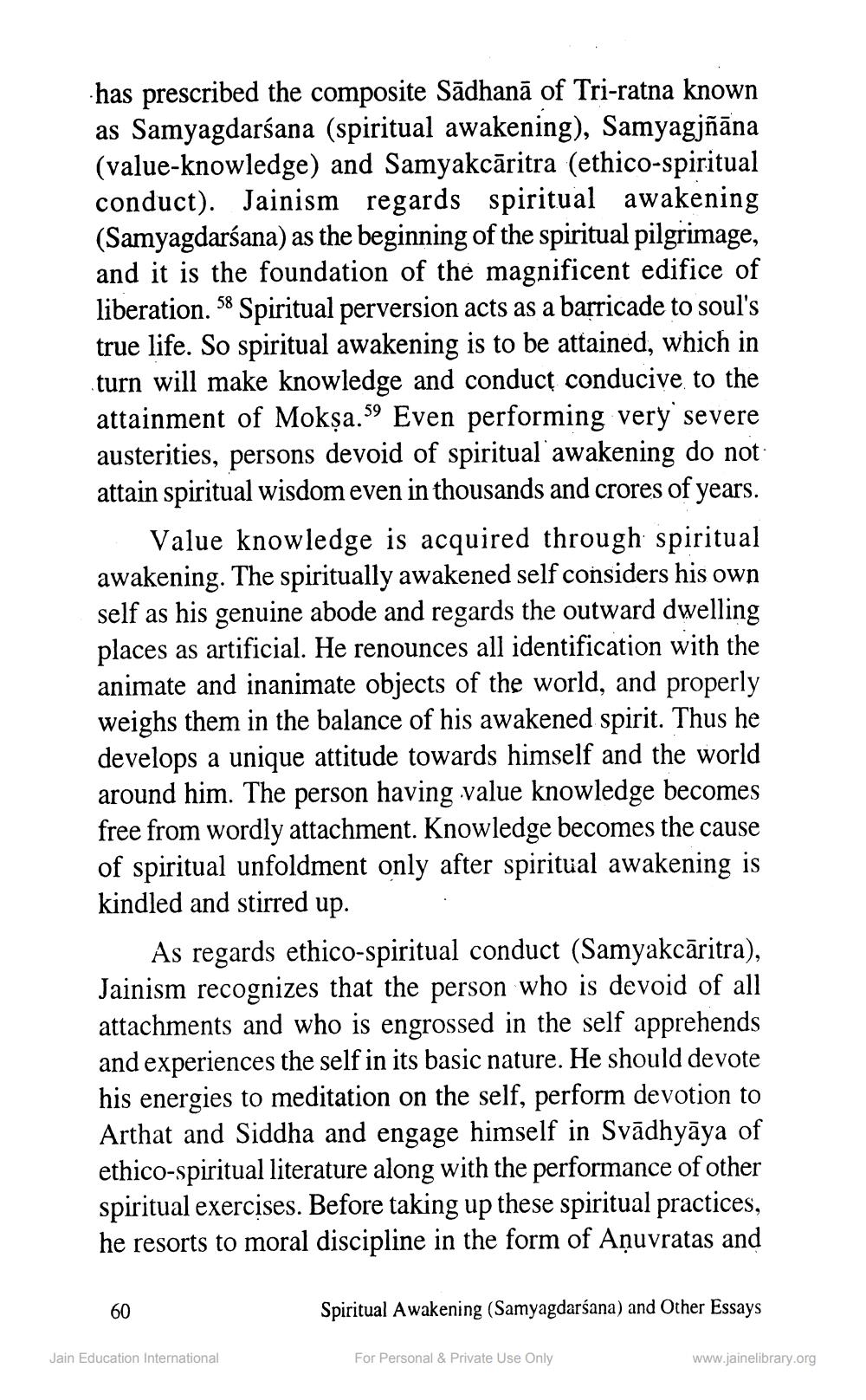________________
has prescribed the composite Sādhanā of Tri-ratna known as Samyagdarśana (spiritual awakening), Samyagjñāna (value-knowledge) and Samyakcāritra (ethico-spiritual conduct). Jainism regards spiritual awakening (Samyagdarśana) as the beginning of the spiritual pilgrimage, and it is the foundation of the magnificent edifice of liberation. 58 Spiritual perversion acts as a barricade to soul's true life. So spiritual awakening is to be attained, which in turn will make knowledge and conduct conducive to the attainment of Mokșa.59 Even performing very severe austerities, persons devoid of spiritual awakening do not attain spiritual wisdom even in thousands and crores of years.
Value knowledge is acquired through spiritual awakening. The spiritually awakened self considers his own self as his genuine abode and regards the outward dwelling places as artificial. He renounces all identification with the animate and inanimate objects of the world, and properly weighs them in the balance of his awakened spirit. Thus he develops a unique attitude towards himself and the world around him. The person having .value knowledge becomes free from wordly attachment. Knowledge becomes the cause of spiritual unfoldment only after spiritual awakening is kindled and stirred up.
As regards ethico-spiritual conduct (Samyakchritra), Jainism recognizes that the person who is devoid of all attachments and who is engrossed in the self apprehends and experiences the self in its basic nature. He should devote his energies to meditation on the self, perform devotion to Arthat and Siddha and engage himself in Svādhyāya of ethico-spiritual literature along with the performance of other spiritual exercises. Before taking up these spiritual practices, he resorts to moral discipline in the form of Aņuvratas and
60
Spiritual Awakening (Samyagdarśana) and Other Essays
Jain Education International
For Personal & Private Use Only
www.jainelibrary.org




